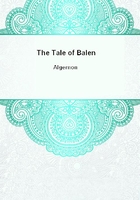
第102章 CHAPTER XIV(3)
Waldo did not wait till she returned. Perhaps he had at last really grown weary of work; perhaps he felt the wagon-house chilly (for he had shuddered two or three times), though this was hardly likely in that warm summer weather; or, perhaps, and most probably, one of his old dreaming fits had come upon him suddenly.
He put his tools together, ready for tomorrow, and walked slowly out. At the side of the wagon-house there was a world of bright sunshine, and a hen with her chickens was scratching among the gravel. Waldo seated himself near them with his back against the red-brick wall. The long afternoon was half spent, and the kopje was just beginning to cast its shadow over the round-headed yellow flowers that grew between it and the farmhouse. Among the flowers the white butterflies hovered and on the old kraal mounds three white kids gambolled, and at the door of one of the huts an old grey-headed Kaffer-woman sat on the ground mending her mats. A balmy, restful peacefulness seemed to reign everywhere. Even the old hen seemed well satisfied. She scratched among the stones and called to her chickens when she found a treasure; and all the while tucked to herself with intense inward satisfaction.
Waldo, as he sat with his knees drawn up to his chin and his arms folded on them, looked at it all and smiled. An evil world, a deceitful, treacherous, mirage-like world it might be; but a lovely world for all that, and to sit there gloating in the sunlight was perfect. It was worth having been a little child, and having cried and prayed so one might sit there. He moved his hands as though he were washing them in the sunshine.
There will always be something worth living for while there are shimmery afternoons. Waldo chuckled with intense inward satisfaction as the old hen had done--she, over the insects and the warmth; he, over the old brick walls, and the haze, and the little bushes. Beauty is God's wine, with which He recompenses the souls that love Him; He makes them drunk.
The fellow looked, and at last stretched out one hand to a little ice-plant that grew on the sod wall of the sty; not as though he would have picked it, but as it were in a friendly greeting. He loved it. One little leaf of the ice-plant stood upright, and the sun shone through it. He could see every little crystal cell like a drop of ice in the transparent green, and it thrilled him.
There are only rare times when a man's soul can see Nature.
So long as any passion holds its revel there, the eyes are holden that they should not see her.
Go out if you will and walk alone on the hillside in the evening, but if your favourite child lies ill at home, or your lover comes tomorrow, or at your heart there lies a scheme for the holding of wealth, then you will return as you went out; you will have seen nothing. For Nature, ever, like the Old Hebrew God, cries out, "Thou shalt have no other gods before me."
Only then, when there comes a pause, a blank in your life, when the old idol is broken, when the old hope is dead, when the old desire is crushed, then the Divine compensation of Nature is made manifest. She shows herself to you. So near she draws you, that the blood seems to flow from her to you, through a still uncut cord: you feel the throb of her life.
When that day comes, that you sit down broken, without one human creature to whom you cling, with your loves the dead and the living-dead; when the very thirst for knowledge through long-continued thwarting has grown dull; when in the present there is no craving, and in the future no hope, then, oh, with a beneficent tenderness, Nature infolds you.
Then the large white snow-flakes as they flutter down, softly, one by one, whisper soothingly, "Rest, poor heart, rest!" It is as though our mother smoothed our hair, and we are comforted.
And yellow-legged bees as they hum make a dreamy lyric; and the light on the brown stone wall is a great work of art; and the glitter through the leaves makes the pulses beat.